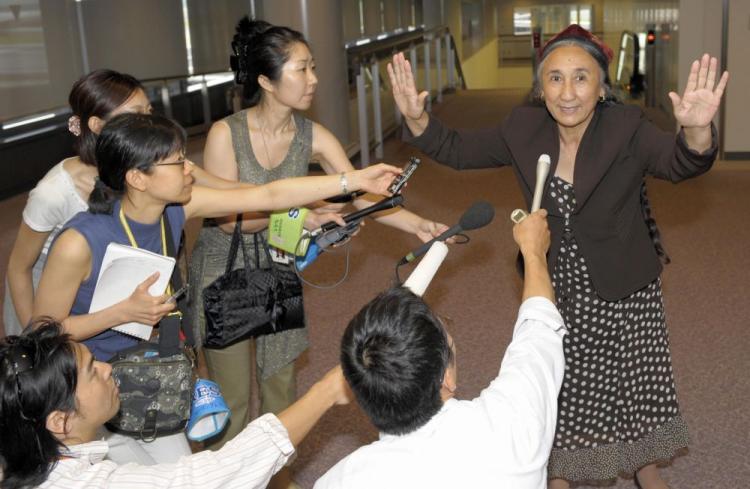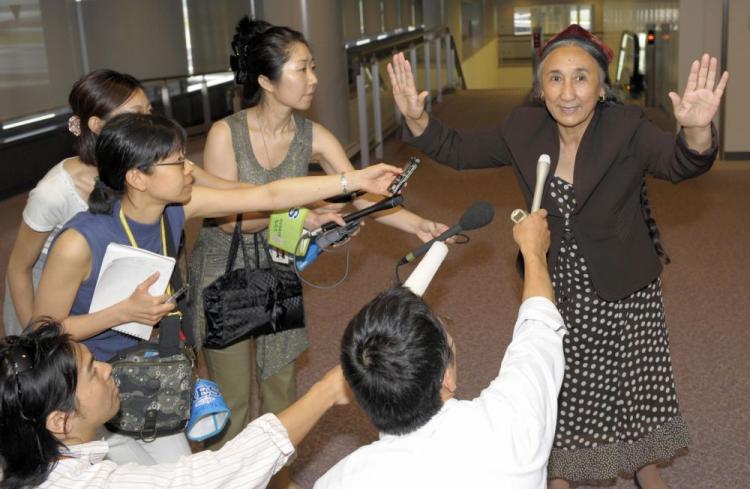The artistic director of Brisbane’s International Film Festival (BIFF) says she is horrified by the behavior of the Chinese Consulate and the ensuing cyber attacks on the Melbourne International Film Festival (MIFF).
“I think it is appalling. It is a really strange, inappropriate kind of tactic in a society that has freedom of speech,” Anne Demy-Geroe told The Epoch Times.
Ms. Demy-Geroe said she is receiving calls from friends in Europe equally horrified at the bullying, and stands firmly in the belief that International film festivals have a duty to screen controversial films.
“I see what is very important about a festival is that it is a big, relatively mainstream kind of event where people can go and see these kinds of films and see for themselves to make up their own opinion, whatever the color of their politics,” she said.
MIFF Director, Richard Moore had alerted Australian media to the pressure he was receiving from the Chinese Consulate in Melbourne to remove an Australian documentary The 10 Conditions of Love which is about the life of Rebiya Kadeer.
Ms. Kadeer is president of the World Uyghur Congress and global spokesperson for the repressed Uyghur people in China.
She says the recent crackdown in the Uyghur Autonomous region in Xinjiang Province has seen the deaths or disappearance of thousands of Uyghurs and is calling on the U.N. to intervene.
Mr. Moore refused to remove the film or cancel Ms. Kadeer’s visit as a special guest of MIFF, resulting in a massive cyber attack. The Web site was blocked and derogatory comments were added, he said.
“This little Chinese flag sort of popped up and went ding-da-ding-ding-ding and there was a message on it that said basically they objected to the presence of this film,” he told the ABC.
“We had 80,000 hits on our Web site on Sunday alone, not related to ticketing. We normally would have 10,000 hits a day —80,000! The volume is amazing. Apparently there are bulletin boards going out in China saying must attack the MIFF Web site,” he said.
Mr. Moore is considering following the self-censoring approach adopted by the Venice Film Festival which incurred similar harassment from the Chinese Consulate last year.
“You don’t publish the information so the Chinese officials don’t know it’s happening. The audience are already attuned to the fact that there is going to be an independent Chinese film on in that slot so they go for that. So I think that is what we are going to do next year,” Mr. Moore told the ABC.
Peter Black, a specialist in Internet law and censorship at Queensland’s Institute of Technology, says to adopt the Venice approach was an “unfortunate step” and would have a “chilling effect” on free speech in Australia.
“Obviously the option to self-censor is always, on one level at least, appealing because it is an easier option to take. The problem is once individuals and organizations go down the path of self-censorship it has a very detrimental effect on freedom of speech in this country.
“We should be wanting to preserve a way of life and a freedom in a democratic system that allows us to speak openly, honestly, frankly and fully about a wide range of issues even when those issues are potentially sensitive. and even when those issues might attract controversy,”he said.
Mr. Black said the onslaught suffered by MIFF made it all the more important for festivals to be free to screen controversial films so that the public could gain an understanding of the issues at hand.
“I think it would be better off leaving movies like that on the program, publicizing them, inviting people from all points of view and even facilitate having a debate around that. But simply trying to keep things quiet, I actually don’t think it is in anyone’s interest.”
Five Chinese films were withdrawn from MIFF as a result of the regime’s interference. They include Chinese mainlander, Jia Zhangke’s film Cry Me a River, and a Taiwanese film directed by Cheng Hsiao-tse. The Taiwanese film was withdrawn by producers, Wong Kar-Wei and Stanley Kwan, both notable filmmakers but also co-owners of production house Jet Tone Films which is based in Hong Kong.
Ms. Demy-Geroe says she was surprised the films were was pulled as most were from Hong Kong production houses, but was relieved that one of the films, Perfect Life, directed by Emily Tang and produced by Jia Zhangke, was still on for BIFF which starts July 31st.
She said she did not know how she would react to the sort of pressure that her colleague, Richard Moore had endured, but hoped that she would not be forced to back down in a similar event.
“I would like to believe that I would stand up for my principals but we can’t know how we will buckle. And then of course we have boards to report … I would like to think that I would show it to my board and we could take a stand on it.
Peter Black says everyone should be concerned to take a stand for free speech. “Certainly individuals or groups should be encouraged to stand up and be counted when it comes to these sorts of issues,” he said.





